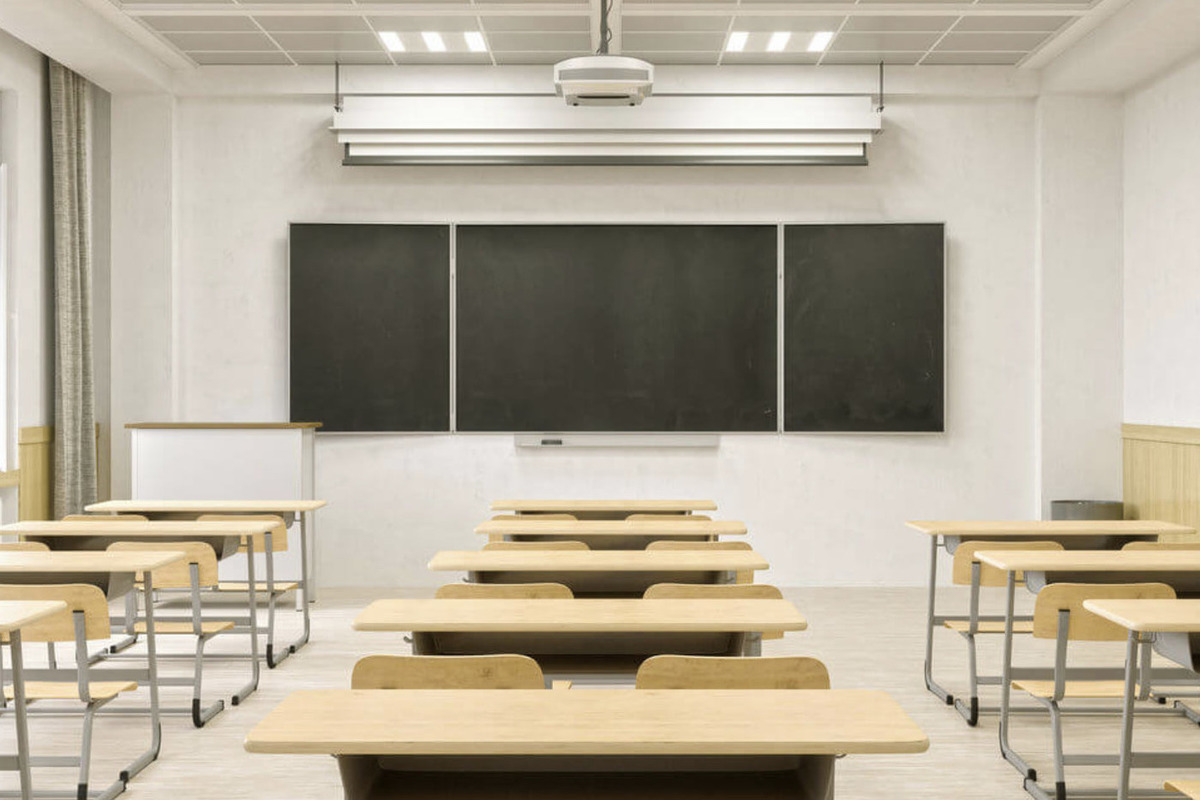Retrained specialists without specialized education poured into schools: engineers, lawyers, officers
[ad_1]

Previously, it was not uncommon for physical education to be taught by former athletes, NVP officers, and even the Russian language could be taught by a former journalist. Today you cannot get to school without pedagogical education. But there are still people for whom the teaching profession becomes the second and main thing in life.
What attracts them to school? And how do “newcomer” teachers live near the blackboard, with a pointer in their hands?
The topic is far from idle – everyone knows the shortage of teachers in the country, especially in the regions. Therefore, in almost every major city there are municipal or regional courses where you can undergo retraining in order to work in a school. There is a whole state program, after completing which you can become a teacher, on the basis of your first higher education or college.
Who and why changes another profession to a teacher at school? Most often these are women living in large cities. And the prevailing motivation is emotional – “children are my calling.”
“I graduated from the university, but was disappointed in my specialty,” says Natalya from Chita. – Probably, initially there was a teacher in me, but my close people did not see this, because everyone is a hereditary engineer. Retraining gave me a new chance, I found myself in my place. Unlike many colleagues from pedagogical universities who ran away from school after a year of work…
Engineers, lawyers, economists, chemists, athletes, reserve officers, and office workers become teachers. Although, there are also “exotic” ones: actors, artists, tour guides, archaeologists, designers… Everyone seems to have their own reason, but in general they are transparent. Or there is a surplus of specialists in some field – like lawyers or economists. The reason to change your fate and go to your children may be a lack of creative demand, a health condition that does not allow you to fully devote yourself to your first specialty.
“We have a female archaeologist teaching geography, she tells us about her expeditions,” says 12-year-old Alina from Moscow. “She can’t drive on her own, she’s limping.” Everything is so interesting, you’ll listen to it. A third of our class wants to be archaeologists.
The law allows persons with higher or secondary education to work in schools after receiving a second pedagogical or retraining. According to the professional standard, a teacher is a specialist with higher education or secondary vocational education within enlarged groups in the areas of training “Education and Pedagogical Sciences”. Or with the same education in a field relevant to the subject being taught. Or with a similar education and additional professional education in the field of activity in an educational organization.
Simply put, there are two ways to retrain as a teacher – either a second higher education (secondary vocational) or retraining courses. In Moscow, universities have such courses – at RUDN University, at Moscow State University at the Faculty of Pedagogical Education, at the Institute of Continuing Education of Moscow State Pedagogical University, etc. You can get a second specialty on the basis of the first HE. The main requirement is that the first “tower” corresponds to the subject or subjects that you are going to read at school.
It is no secret in schools that “real” teachers are often biased towards retrained ones. Especially if those “only have a history of college,” or “just courses.”
“As far as I know, in the regions, due to a lack of personnel, they hire any specialists; retraining of 100-200 academic hours is enough,” says teacher Margarita from Klin, who came to the school after studying law. – In Moscow and St. Petersburg they may not take you even after two years of retraining.
But no matter where you settle, there will always be dissatisfied people who will say: “What about psychology, what about practices? Or they haven’t gone through “this and that” yet. I don’t pay attention to it. A pedagogical university does not make a good teacher and does not guarantee normal communication with children.
Probably, for those who came to school “from the side entrance”, additional learning throughout life is more relevant. True, any teacher needs this, in my opinion. And then some graduated from university 20 years ago, and that’s it… I retrained, I teach social studies and life safety. I recently passed for the highest category.
No matter what they say about teachers’ salaries, in Moscow and large cities they are at the level of 60-100 thousand rubles. Therefore, men and those retrained from other professions slowly flocked to schools here. Within the teaching community, discussions around the new competition are heated. Some are sarcastic, some defend their newly retrained colleagues. “Aren’t pedagogy and methodology practical disciplines that a teacher masters in the process of teaching throughout his life? – asks Tamara Pavlovna from Balashikha. – And since when do only excellent students go into teaching? What, everyone here has received a pedagogical education and works according to their profile? Has anyone from an elementary school teacher become a Russian? And from an Englishman to a computer scientist, and from a geographer to a writer?..” “Previously, there were many at school who graduated from physics and mathematics without pedagogy and taught exact sciences at school,” supported a colleague from Moscow. “And they taught no worse than now.”
[ad_2]
Source link








